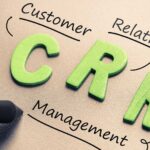Google ads are an important part of an effective marketing strategy.
Given the time the average American spends online, digital advertising is very effective. Besides the large reach, google display or search ads provide amazing targeting and reporting capabilities. If your goal is to increase leads for your sales team or increase brand awareness, digital ads provide solutions for all budgets.
The investment in planning, creating, execution and implementing google display ads, social media advertising, and search ads can be sizable. The average small to mid-size business will spend anywhere from $1000 to $10,000 per month on google ads – that means up to $120,000 per year! Therefore, it is critical that your business receives a return on investment.
The digital space is becoming more and more competitive.
According to Statistica, digital advertising spending worldwide amounted to 522.5 billion U.S. dollars in 2021. The source projected that by 2026, the spending would reach 836 billion dollars (about $2,600 per person in the US). This means that your competitors are watching your traffic, your ads and your audience!
It is important that your ads are effective and provide revenue.
It is critical to track KPI’s like conversion rates (by industry), engagement rates and click thru rates. Did you know the average conversion rate across all industries for search ads is 4.2%, while for display ads, it’s 0.55%. (DataBox). It is important to measure and monitor them daily.
Optimizing your Google Ads Campaigns
An effective online marketing strategy is crucial to getting the most value out of your advertising budget. Here are some tips to help you maximize the effectiveness of your Google Ads campaigns:
Set Clear Goals:
Define your campaign objectives clearly. Whether it’s brand awareness, lead generation, or sales, having a clear goal will guide your campaign strategy.
Keyword Research:
Conduct thorough keyword research to identify the most relevant and high-performing keywords for your business. Use tools like Google Keyword Planner to find keywords with the right balance of search volume and competition.
Negative Keywords:
- Regularly review and update your list of negative keywords to filter out irrelevant traffic. This can help improve your click-through rate and ensure your budget is spent on the most relevant audience.
Ad Copy Optimization:
- Write compelling ad copy that clearly communicates your value proposition. Experiment with different headlines, descriptions, and calls to action to find what resonates best with your audience.
Landing Page Optimization:
- Ensure that your landing pages are optimized for the keywords and ad copy. The landing page should have a clear and relevant message, a strong call to action, and a user-friendly design.
Ad Extensions:
- Take advantage of ad extensions (such as site link, callout, and structured snippet extensions) to provide additional information and increase the visibility of your ads.
Ad Scheduling:
- Analyze the performance of your ads at different times of the day and days of the week. Use ad scheduling to allocate your budget more effectively during peak times.
Device Targeting:
- Adjust your bids based on the performance of your ads on different devices (desktop, mobile, tablet). This allows you to allocate your budget more efficiently to the devices that bring the best results.
Bid Strategy:
- Choose a bid strategy that aligns with your campaign goals. Google Ads offers various bid strategies, such as manual CPC, enhanced CPC, target CPA, and target ROAS. Test different strategies to see what works best for your objectives.
Remarketing:
- Implement remarketing campaigns to target users who have previously visited your website. This can help re-engage potential customers and improve conversion rates.
Conversion Tracking:
- Set up conversion tracking to measure the success of your campaigns. This allows you to see which keywords and ads are driving the most conversions and helps you optimize your strategy accordingly.
Regular Monitoring and Optimization:
- Regularly review the performance of your campaigns, ad groups, and keywords. Make data-driven decisions based on the insights you gather, and continuously optimize your campaigns for better results.
By implementing these strategies and consistently monitoring and optimizing your campaigns, you can improve the performance of your Google Ads and get the most out of your advertising budget.
We can help you execute a strategy and monitor results effectively. Reach out for a free consultation.






